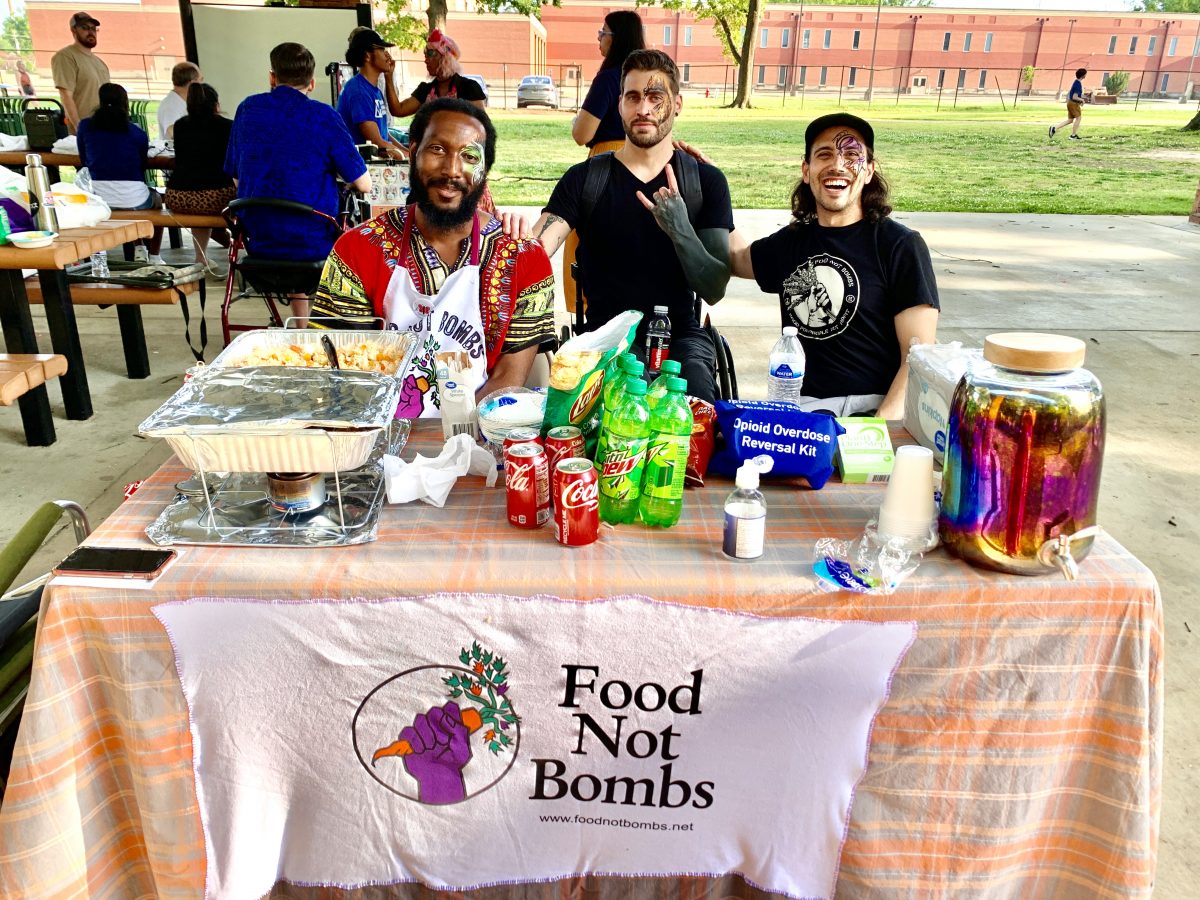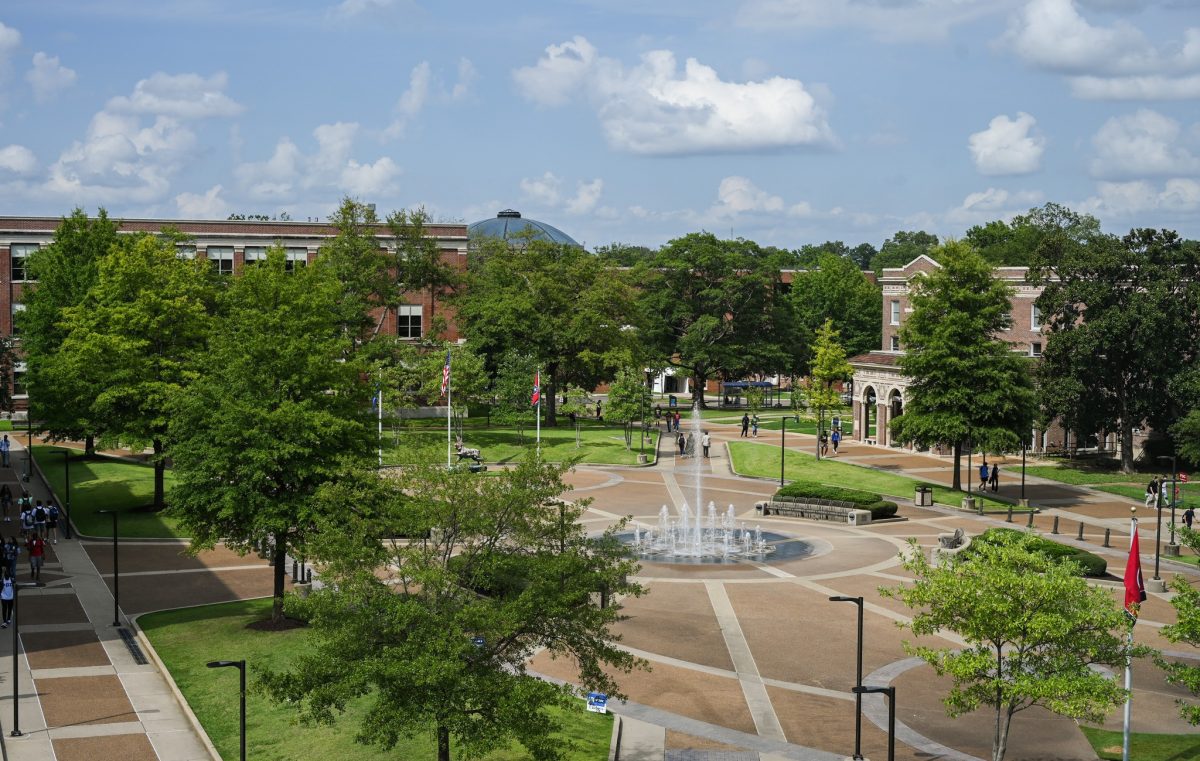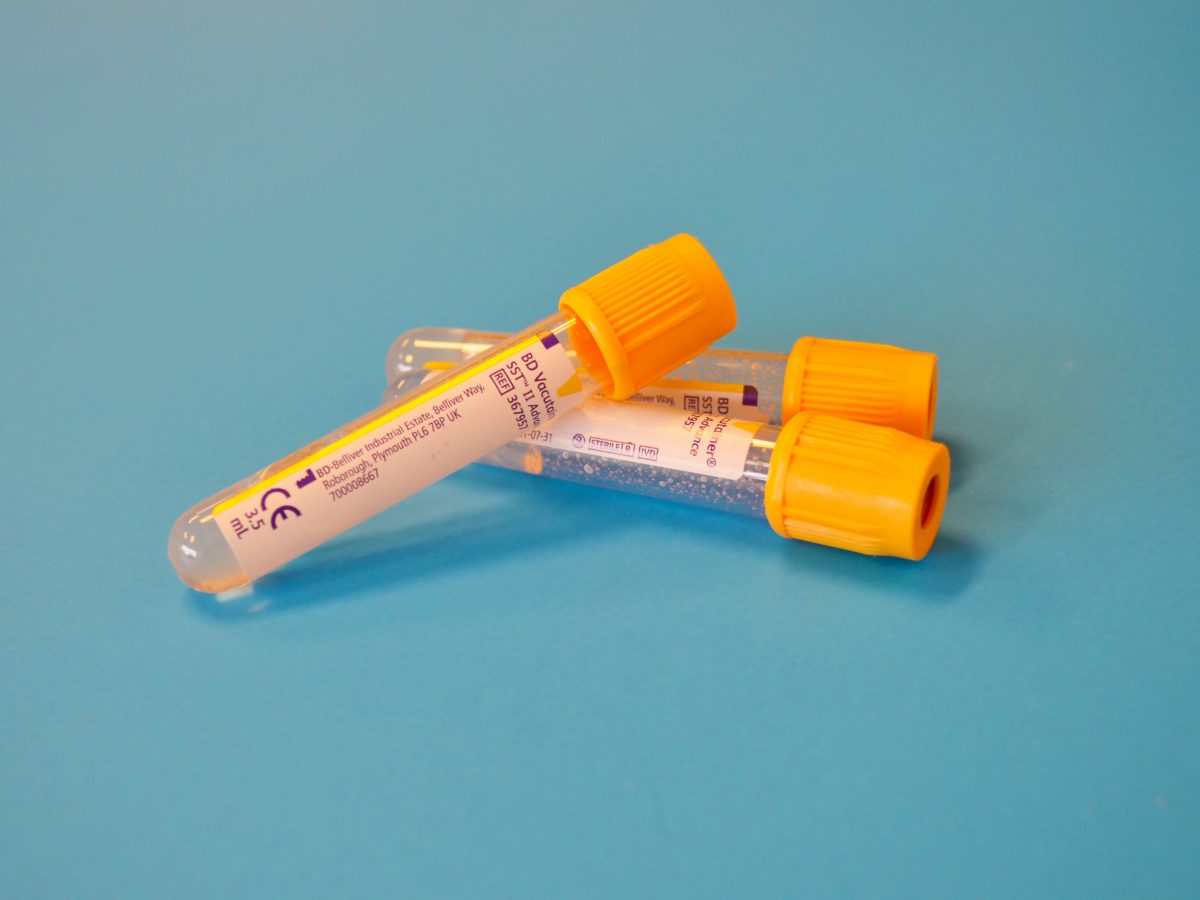In this week’s Memphis Flyer Podcast, Contemporary Media CEO Anna Traverse talks about AI in the newsroom, the challenges of keeping the press free, and our cover story on MPD traffic stops and marijuana.


In this week’s Memphis Flyer Podcast, Contemporary Media CEO Anna Traverse talks about AI in the newsroom, the challenges of keeping the press free, and our cover story on MPD traffic stops and marijuana.

JANUARY
• A state report found “out of control” inmates, drug overdoses, staff shortages, and more in Tennessee state prisons, especially at Tiptonville’s Northwest Correctional Facility.
• Cannabis industry leaders began working against new state rules that would remove smokeable products from their shelves and damage the industry.
• Memphis Police Chief C.J. Davis kept her job but on an interim basis.
• SmokeSlam BBQ Festival was introduced.
• We got to the bottom of the “Dicc Dash” car that had been seen all over Memphis.
• Winter Storm Heather left five dead in Shelby County, pushed a record-breaking demand for electricity, and put all residents under a boil-water advisory.
FEBRUARY
• Artis Whitehead was exonerated 21 years after he was convicted of a 2002 robbery at B.B. King’s Blues Club.
• Governor Bill Lee pushed for more school vouchers and big business tax cuts in his State of the State address.
• The Memphis-Shelby County Schools board picked Marie Feagins as its new superintendent.
• Data showed that Black residents got four times as many traffic tickets than whites.
• A bill was filed to mandate gun safety training for every Tennessee school student.

MARCH
• American Queen Voyages closed.
• Eighteen anti-LGBTQ bills were introduced from GOP lawmakers in the state legislature.
• State House members voted to stop the Memphis City Council from a proposed ban on pretextual traffic stops, which came in the wake of the beating death of Tyre Nichols by MPD officers.
• The Overton Park Conservancy (OPC) gave an early look at new trails on land ceded to the park by the Memphis Zoo.
• Protestors cut short Kyle Rittenhouse’s appearance at University of Memphis.
• The Satanic Temple sued the Shelby County Board of Education over discriminatory practices on club meetings.
• A GOP House member wanted to ban lab-grown meat.
APRIL
• State GOP lawmakers wanted users to submit their ID before watching porn online.
• Bartlett’s American Paper Optics produced nearly 3 billion pairs of paper glasses for the solar eclipse.
• A shoot-out left MPD Officer Joseph McKinney and one suspect dead. McKinney was killed by friendly fire.
• State leaders introduced a $787.5 million project to replace the Memphis-Arkansas Bridge.
• State GOP lawmakers stopped Memphis leaders from studying Black reparations.
MAY
• The school voucher bill died.
• A Buc-ee’s was promised for Fayette County.
• Lee signed a bill that granted anti-LGBTQ parents the right to adopt LGBTQ children.
• The Biden administration paused a ban on menthol cigarettes.
• We caught up with Renee Parker Sekander, the city’s first LGBTQ liaison.
• Tennessee Attorney General Jonathan Skrmetti sued the federal government over rules on pronoun respect in the workplace.
• The zoo announced a 20-year, $250-million campus plan.
• Memphis Shelby County-Schools ruled against teachers carrying guns, despite a new state law allowing it.
• A mysterious investment firm claimed it owned Graceland and would auction it off.
JUNE
• Mr. Lincoln’s Costume Shoppe closed.
• Memphis ranked as most dangerous city for pedestrian deaths.
• Renting a home in Memphis became more affordable than buying one.
• Elon Musk announced Memphis would be the new home for his supercomputer, Grok.
• New census data said nearly half of Tennesseans could not afford the basic cost of living in their counties.
• Tina Sullivan announced she would step down from the OPC.
• The Memphis Area Transit Authority (MATA) asked the city council for $30.5 million after revealing a $60 million deficit.
• A federal judge blocked some protections of transgender people in Tennessee allowed by new Title IX rules.
JULY
• Planned Parenthood of Tennessee and North Mississippi said more than 10,000 people had left Tennessee for an abortion in the two years after Roe v. Wade was overturned.
• The U.S. Supreme Court announced it would hear Tennessee’s ban on gender-affirming care for transgender minors.
• The Memphis Brooks Museum of Art’s new Memphis Art Museum project was allowed to move ahead after a judge denied a challenge from Friends for Our Riverfront.
• City council members asked for more transparency from MATA after the announcement of its big budget deficit.
• New state laws went into effect including a death sentence for child rapists, one against “abortion trafficking,” a declaration of the Bible as a state book, one against “chemtrails,” and another for singers’ protection from AI.
• A court denied former state Senator Brian Kelsey’s (R-Germantown) request to rescind his guilty plea for campaign finance violations.
• The former leader of Shelby County’s Covid vaccine rollout lost a bid to declare she was wrongly blamed for allowing hundreds of doses to expire.
• A court ruled transgender Tennesseans cannot change the gender marker on their birth certificates.
• Memphis International Airport was green-lit for a $653 million modernization of its main terminal.
• The school board settled with the Satan Club for $15,000 and a promise to end its discriminatory practices.
• A court ruling allowed a ban on drag shows in public places.
• Tennessee tourism hit a record spend of more than $30 billion in 2023.
AUGUST
• Environmental groups asked Memphis Light, Gas & Water (MLGW) to deny an electricity deal for xAI’s supercomputer.
• The Links at Audubon Park opened.
• Memphis cases of HIV and syphilis spiked 100 percent over the past five years.
• Leaders warned of a tax surge coming after property reappraisals next year.
• Black Lodge closed.
• Serial scammer Lisa Jeanine Findley was arrested in Missouri for her attempt to steal Graceland from the Presley family.
• MATA suspended trolley service.
• Kaci Murley was named OPC’s new executive director.
• The Tennessee Valley Authority (TVA) raised electricity rates by 5.25 percent.
SEPTEMBER
• Carol Coletta stepped down as CEO of the Memphis River Parks Partnership.
• A state land deal could protect the Memphis Sand Aquifer.
• Cannabis industry leaders sued the state over new rules that would ban smokeable products.
• Tennessee ranked near the top for arresting people for cannabis.
• For the third year in a row, water levels were down in the Mississippi River after Midwest droughts.
• AG Skrmetti proposed warning labels for social media.
• Social media threats made for a turbulent week at local schools with disruptions and some lockdowns.
OCTOBER
• Lawmakers want to replace the now-fallen statue of racist newspaper editor Edward Carmack at the State Capitol Building with David Crockett.
• A court decision mandated schools offer “reasonable accommodation” for transgender students to use bathrooms of their choice.
• Three MPD officers were convicted in the beating death of Nichols.
• Memphis Mayor Paul Young replaced every member of MATA’s board.
• State Democrats pressed for financial reforms to address the state’s “crumbling transportation infrastructure.”
• Judges blocked discipline for doctors who provide emergency abortions.
NOVEMBER
• Atomic Rose closed.
• A new school voucher bill was filed.
• The Memphis-area crime rate fell.
• Tuition at state schools looked likely to rise again next year.
• TVA approved xAI’s request for power.
• Teachers scoffed at Lee’s $2,000 bonus as a “bribe” to go along with school vouchers.
• 901 FC left Memphis for Santa Barbara.
• University of Tennessee Health Science Center began a plan to demolish the “eyesore” former hotel building on Madison.
• Gun Owners of America sued the city of Memphis to block the gun referenda approved by voters from ever becoming law.
• A new $13 million plan will help redesign the intersection of Lamar, Kimball, and Pendleton.
• Crime fell Downtown in 2024 compared to 2023.
• Cannabis industry leaders filed another suit against the smokeables ban after lawmakers left it in the final rules.
DECEMBER
• Buds and Brews, a restaurant featuring cannabis products, opened on Broad.
• Blended sentence laws could usher hundreds of kids into the adult criminal justice system.
• State revenue projections flagged on big business tax breaks.
• A blistering report from the U.S. Department of Justice found that MPD used excessive force, discriminated against Black people, and used “harsh tactics” against children.
• Houston’s abruptly closed.
• The SCOTUS heard Skrmetti’s case against gender-affirming care for transgender minors.
• The former Velsicol facility in North Memphis could enter into a state-run environmental response trust.
• Feagins narrowly survived the board’s ouster move but the situation will be reviewed in 2025.

The Memphis chapter of Food Not Bombs was launched in May of 2022 with “a mission to share free food and education as a means of direct action to abolish exploitative systems of domination.”
The group was originally formed in Cambridge, Massachusetts, in 1980. The organization now has chapters all over the world.
According to members of the organization, they are a “a diverse community of BIPOC, LGBTQIA+, and neurodivergent Memphians who share the motto, ‘Food is a right, not a privilege.’”
“We plant seeds of education and work to dismantle the socioeconomic systems of oppression that create unnecessary hunger and poverty. This work applies locally, nationally, and globally,” said members of the organization.
The Memphis chapter of Food Not Bombs has now been around for a year. The Flyer sat down to talk with them more about their mission, both locally and nationally, as well as some of the work being done in the communities they serve.
Memphis Flyer:What is your mission locally? What about nationally?
Food Not Bombs:We relate to the intersectional struggles and oppression of the disabled, justice-impacted, sex workers, food-insecure, and homeless, and we welcome them with compassion and open arms. We believe that there is no legitimate reason for someone to be deprived of food. Access to food and resources is deserved everywhere regardless of borders, ZIP codes, and IDs.
There is more than enough food in the richest country on planet Earth; nearly 40% of the food grown in the United States ends up in a landfill while 38 million Americans are unable to afford basic necessities like food, housing, and healthcare. In America alone, 500 people die every day from poverty, while, globally, 25,000 people die every day from hunger. There are systemic reasons for all of these inequities. We believe that not enough people are aware of the severity of the problem nor what they can do to improve these conditions. We are here to help educate and show people that through thinking globally and acting locally, we can create the equity we desire within our own neighborhoods and communities. To quote the late labor organizer Lucy Parsons, “Anarchists know that a long period of education must precede any great fundamental change in society, hence they do not believe in vote begging, nor political campaigns, but rather in the development of self-thinking individuals.”
What does the phrase “solidarity, not charity” mean to you all?
Solidarity means mutual aid. It is reciprocity by nature and practice. “You today, me tomorrow.” Mutual aid helps those in need in a way that also disrupts the systems that create the real and perceived scarcity of people’s basic necessities. Charities offer symptomatic treatment to deeply rooted problems, and due to financial interests, avoid addressing the conditions that caused the aid to be needed. This is sometimes referred to as the “nonprofit-industrial-complex.” Charities may not be reciprocal and aid may be distributed through bureaucratic hierarchies which prevent some in need from receiving the resources being offered.
Can you explain the independent and autonomous aspect of your chapter? What about the consensus process?
We encourage anyone to decide with us how we progress, especially those who depend on us.
Food Not Bombs and its 1,000-plus decentralized chapters from 60-plus countries are liberated by autonomy and consent and are free from hierarchy or chain of command. Chapter to chapter, each group is empowered to identify and address their own unique needs. For example, Food Not Bombs does not typically have a book club, but our chapter felt it incumbent to educate within our local collective, so we host a reading group that meets once a month to discuss selected texts that we agree upon.
All chapters make decisions by consensus, which is general agreement. Consensus is built on the principle of consent: Rather than relying on a majority, we believe that every participant should be allowed to voice their opinions. We address, discuss, and resolve any concerns to create meaningful solutions in the best interests of everyone.
Explain the importance of your nonviolent approach.
Nonviolence is a disruptive force which is critical in changing oppressive institutions. Many problems in our society stem from a philosophy of violence being the answer. This fosters a culture of violence which equates punishment as the primary form of justice. Food Not Bombs rejects that point of view. The ethos of Food Not Bombs is that of harm reduction. It’s in the name. The Memphis Food Not Bombs culture centers sharing stemmed from caring. The Food Not Bombs community is nonviolent because we reject societal institutions using violence as a method to control socioeconomic power. A system of sharing and caring must be disseminated while systems of violence are dismantled.
How is the food accessibility landscape changing in Memphis? What are some areas that have grown? What areas need improvement?
Coalitions are growing as organizations intertwine to end food injustice. The work to address one in four Memphians living in poverty cannot be done alone. 901 Community Fridges has established three public refrigerators that are accessible 24/7. Individuals and organizations like us routinely supply donations.
A Betor Way hosts needle exchanges and weekly food shares, and activist group Memphis 4 Revolutionary Socialism also hosts bi-weekly mutual aid food shares.
First Congregational Church of Cooper-Young offers the Food Justice Ministry, complete with a pantry and kitchen where hungry folks can get free food. Through our partnership, we have provided their kitchen with hundreds of pounds of rescued food.
We are partnering with The Memphis Church in Cordova to set up an unrestricted, 24/7 Food Not Bombs Community Fridge. We have more fridges to set up in Memphis as we seek hosts.
One thing individuals can do to help programs like ours is to donate excess food, harm reduction, and hygiene products. We will take just about any donations as we look to offer free clothing, books, and other household items at upcoming events, which people can find out about by following us on social media. Individuals can also help influence their own communities to begin food sharing programs — if you don’t know how, we can help. Food shares are growing as more individuals are joining grassroots organizations.
Collectivizing together as an intersectional alliance to expand free food access is the continuum; anyone interested in getting involved is more than welcome to reach out to us — we are always seeking more volunteers and community partners.
You all partner with other organizations and marginalized groups. Why do you feel it’s important to show support for other groups whose ideas may not solely be rooted in protesting war and poverty through food?
Food Not Bombs’ organizational philosophy focuses on decentralization through fostering multilateral networks of social activism. We want to break down ideological silos, creating environments where all who care about social justice can work together. There are many social activist groups based in Memphis and ultimately there are more people wanting progressive social change than those who don’t. The key is getting all of these people working together in a collaborative effort through a mutual understanding of our shared vision to create better social equity. There are many different ways to end social inequality and many different approaches are needed for that end. Not everyone can do everything, but many different kinds of organizing are needed; it’s important that various community groups have different ideas of activism as long as we can unite under the shared vision of social justice.

Information released by Mental Health America, a national nonprofit “dedicated to the promotion of mental health” through public education, research advocacy, public policy, and direct service, showed that out of 151,781,326 people in the male population of the U.S., about six million are affected by depression.
Mental Health America said that male depression often goes undiagnosed, and is one of five major mental health problems affecting men. Others include anxiety, bipolar disorder, psychosis and schizophrenia, and eating disorders.
According to Rick Harrell of RH Counseling Services in Memphis, men are less likely to seek out mental health services. A January 2023 report from Statista estimated that 12.1 percent of U.S. men received mental health treatment or counseling in the past year (2021).
“A lot of that comes from the various stigmas that come along with getting help,” said Harrell. “[Like] if you seek out help in some way, you’re crazy, or all the stigmas that come with that. Men also internalize things more than women do, and they try to just deal with it on their own.”
The information compiled by Mental Health America states that some of the reasons men fail to seek help are societal norms, reluctance to talk, and downplaying of symptoms.
While these stigmas have always existed, Harrell said that there has been more of an emphasis on mental health lately, which has resulted in more men enrolling in counseling services.
A poll issued by East Tennessee State University (ETSU) showed that the mental health of Tennesseans was impacted by the COVID-19 pandemic. A poll conducted by the Applied Social Research Lab at ETSU concluded that “4.6% of Tennesseans were symptomatic of anxiety and 27.1% were symptomatic of depressive disorder.”
While the pandemic undoubtedly had an effect on mental health, it also led to more people seeking out counseling and therapy services. The National Library of Medicine reported that as of September 2020, men sought out these services at a higher rate than women.
Harrell has seen this in his own practice, as well. He said that in his 24 years of practice, he’s seen a majority of his male patients coming as a result of being pushed or ordered to attend — as a result of a court order or couple’s counseling. He has recently seen a shift, where more men are coming on their own accord.
“I have seen over the last few years, post-pandemic, more men take the initiative to seek out therapy on their own,” said Harrell. “I think we’re becoming more knowledgeable about it, and I think the stigmas that have been associated with getting mental health services — we’re beginning to dispel some of those things.
“It’s okay to not be okay, but it’s not okay to stay not okay,” said Harrell. “Knowing that there’s help out here, and you can heal from the issues. I think when we keep it in the forefront and we continue to dispel the myths and the stigmas that center around mental health and educate our communities, we begin to make some improvements in that space.”

Innovate Memphis is offering a new phone service targeted towards older adults and people with disabilities in Shelby County. The Rides to Resources program will provide these individuals with “reliable transportation options to get to their destinations,” with no mobile app required.
Innovate Memphis says the program can be used for activities “related directly to essential health care and social determinants of health (SDOH)-related services.” The Office of Disease Prevention and Health of the U.S. Department of Health and Human Services defines these as the conditions in the environments where people are born, live, learn, work, play, worship, and age that affect a wide range of health, functioning, and quality-of-life outcomes and risks.
“We continue to ask ourselves and our nonprofit partners an important question: How can we keep Memphis seniors moving?” said Innovate Memphis executive director Jessica Lotz. “Rides to Resource will increase accessibility to a variety of basic needs beyond primary and urgent health care. Aging adults are encouraged to use this free, reliable service to get them where they need to go — safely and on time.”
For this service, eligible destinations are behavioral health appointments, case management sessions (medical or non-medical) and food access points.
Courtney McNeal is the city innovation director and chief of staff for Innovate Memphis. The 901RideChoice program was launched in 2019 as a free phone service for the aging population and people dealing with disabilities to connect them to reliable transportation options within the city. It was initially presented as a way to address non-emergency rides.
901RideChoice is a phone service program that connects older adults with a variety of transportation options and is funded by the Memphis Area Transit Authority and the City of Memphis through a federal Department of Transportation 5310 grant.
Through this program, callers would receive the best option to procure a ride depending on circumstances.
“We noticed that it was high call volume with the emergency telephone number, which increased the hold time for those who actually had emergencies,” said McNeal. “This was a way for us to focus on that — to decrease the number of non-emergency related phone calls, as well as to address the need of getting seniors to and from different places depending on reliable transportation options.”
It started as a way for the organization to get the word out and connect this population with resources, however as time went on, more opportunities became available for them to form partnerships with other agencies to provide subsidized rides.
The Rides to Resources program is free, and funded by Local Initiatives Support Corporation and Uber Health. Innovate Memphis said that this grant is “meant to help solve transportation barriers in the city as it relates to health care services and detriments of service accessibility.” According to Innovate Memphis, callers can schedule rides to and from health care appointments, homecare provider services, and services that address SDOH.
This service is available for Shelby County residents from Monday through Friday from 9:30 a.m. to 3:30 p.m. Rides may not be used for personal purposes, and assistance to and from the vehicle is not part of the resource.

The Tennessee Legislature recently passed a recommendation from Governor Bill Lee that will allow for the University of Memphis to receive $5.488 million for campus safety and security upgrades.
According to the university, these upgrades will be for this current fiscal year, and the investment is non-recurring.
In a statement, U of M president Bill Hardgrave said that a “safe, thriving campus,” is their number one priority. The money will be used to “fund proven measures that ensure our students, faculty and staff feel safe on our campus.”
The Flyer reported that the university was named the safest large campus in 2022 by the Tennessee Bureau of Investigation.
The university said that the Tennessee Higher Education Commission (THEC) and Homeland Security did a campus-wide assessment in 2021, which they used to determine five different areas that would receive investments from the funding. The following breakdown was provided by the university:
While the investment will be used to upgrade and install equipment around campus, the university said that they are continuing to work with partner organizations such as MLGW.
“In addition to making the strategic investments [noted above] to improve campus safety and security, the UofM is continuing to work with MLGW to improve lighting on perimeter neighborhood streets,” said the university in a statement. The school will also work with the Memphis Police Department to better coordinate efforts on police patrols on and around campus.
“The UofM will also coordinate with other law enforcement and community partners such as the University Neighborhood Development Corporation to curb crime, specifically auto related crime,” the university said. The majority of crimes on campus are auto-related.
The Tennessee Bureau of Investigation (TBI) released its 2022 Crime on Campus report, which provided “information on crimes, reported to TBI through the Tennessee Incident Based Reporting System, that occurred on college or university campuses.”
According to the report, a majority of the crimes reported at the University of Memphis were larceny and theft offenses (111.) While 36 of the crimes reported in this category were “theft from [a] building,” there were 26 reports of theft from a motor vehicle, and 32 reports of theft of motor vehicle parts.
There were also 47 reports of motor vehicle theft, according to the report.
The university has previously encouraged students and other members of the campus community to utilize the LiveSafe app, which provides an avenue for students to directly communicate with police services on campus through text, pictures, video, and audio. However, Everbridge Crisis Management will replace the app this summer.
“Everbridge will orchestrate all crisis response activities, teams, and resources to accelerate critical event recovery times and allow the UofM to continue prioritizing safety and security,” added the university.

Tennessee leaders are responding to the recent news regarding HIV funding being cut in the state of Tennessee.
On January 19th, The Commercial Appeal reported that the state of Tennessee “is cutting funding for HIV prevention, detection, and treatment programs that are not affiliated with metro health departments as of May 31st.”
According to The Commercial Appeal, an email was obtained from the United Way of Greater Nashville which “told partner organizations there would be a change in the state’s HIV prevention program.”
A January 17th letter from Pamela Talley, medical director of the HIV/STD/viral hepatitis section of the Tennessee Department Health, stated that Tennessee has “provided HIV surveillance, testing, and prevention services through a CDC pass-through grant from the federal government.”
The letter also said that the state of Tennessee has determined “it is in the best interest of Tennesseans for the state to assume direct financial and managerial responsibility for these services.”
In the past, the CDC had awarded $10.10 million to health departments and organizations in Tennessee for HIV prevention and “care activities.” The CDC also projected in 2020 that Tennesseans living with HIV would face an average lifetime cost of $510,000.
AIDSVu, an online mapping tool by Emory University’s Rollins School of Public Health, reported that as of 2020, there were 6,283 people living with HIV in Shelby County, and 235 people were newly diagnosed. In Memphis, there were 6,589 people living with HIV, with 233 people being newly diagnosed.
In a statement released by the Tennessee Senate Democratic Caucus, House Democratic Caucus Chairman Rep. John Ray Clemmons of Nashville said, “The decision is the latest instance of the governor turning his back on vulnerable Tennesseans.
“The Lee administration’s unilateral decision to cut funding to HIV prevention, detection, and treatment programs is only the latest example of his alarming lack of concern for Tennesseans’ health and well-being,” Clemmons said. “It is difficult for those of us who have personally experienced a loved one suffering and ultimately dying from this horrible virus to view this decision as anything less than a heartless act and offensive — it’s beyond the pale.”
Clemmons also stated that “multiple programs that serve communities across this state will be directly impacted by this callous decision, leaving them scrambling for funding to provide much-needed healthcare services.”
In the same statement, state Senator London Lamar (D-Memphis) said, “The administration’s irresponsible decision to reject federal funding for community-based HIV/AIDS prevention endangers the lives of Tennesseans. Our state has made steady progress against this incurable disease thanks to these exact public health efforts.”
Lamar also tweeted, “There is NOTHING ‘pro-life’ that has come out of Tennessee lately. Complete abortion bans. Foster care system worst in country. DCS. Rape kits. Now HIV funding cut. When I think it can’t get worse, the state proves me otherwise. People are not safe here.”

Memphis community organizer Keedran Franklin is urging people to use the app Cell 411 to improve safety efforts in the city.
According to Cell 411, the app can “alert your friends, neighbors, and even emergency service providers when you are in danger, experiencing medical distress, or just need assistance.” The app was created by activists, and users can report acts of police brutality, illegal searches, and more.
The user’s location and alerts can only be seen by people that they specifically allow.
Franklin is encouraging people to download the app and create their own “cells,” which are groups of friends, neighbors, and family that can be alerted at any time. He also encourages people to create their own safety modules.
As a “walking and professional organizer,” Franklin said that once he recognizes a problem, he sets out to make solutions. He said that it is his civic duty to do things for other people.
“There are only 1,900 police officers here in the city of Memphis,” said Franklin. “They can’t be everywhere and serve everyone in time. This app will allow Memphians to connect to one another instantaneously by the click of a panic button.”
The panic button is a feature on the app that will send notifications to people within a 10-mile radius of the location of the incident. It can also provide a live video feed.
Franklin said that with public safety being an issue in the city, he believed that there needed to be some formality for citizens to help protect themselves.
The app, according to Franklin, is a call-and-response app. Users do not have to worry about picking up the phone and dialing a number.
“I can just press a button, and I can have eyes on me at any time,” said Franklin.
According to Franklin, the app is similar to Facebook without statuses. He said that the app is strictly about communicating to people like family, friends and coworkers.
“It has my map on there. There’s a ring that has different options of conflict. Some may say a panic button, or ‘I am being harassed,’ or ‘I’m being pulled over by the police,’” said Franklin.
The app offers different options for users, however Franklin said that having instant access for people to see exactly what’s going on in the present moment is important. He said that this app can be useful to people such as sex workers and women.
“There are a lot of women coming up missing, and some are being found dead and some are just still missing. At the point of something happening, you can hit a button, and people can have instant access to where they are, what’s going on, [and] video of what’s going on. It’s one of those free flowing apps that we can use however we want to.”
As a native Memphian, Franklin said that he has worked to find a solution to Memphis’ crime problem for years.
“I’m an organizer. I like socioeconomic issues. I’m in street orgs myself, so I’m tuned in to the streets just as much as I’m tuned in to public safety and local politics and national politics. I also organize around the country for an organization called Black Men Build.”

The “Tennessee Abortion-Inducing Drug Risk Protocol Act” was passed on May 9, 2022, and took effect on January 1, 2023.
According to the state of Tennessee, this act states that abortion-inducing drugs must be provided only by a qualified physician in a medical facility. This prohibits the distribution of the drug, even by pharmacies, physicians, and qualified physicians, through delivery and mail services.
This does not ban Plan B or other emergency contraceptives.
Recently, the Food and Drug Administration announced that they would be expanding access to abortion-inducing drugs. This means that pharmacies such as CVS and Walgreens will be able to provide pills such as Mifepristone.
As of December 1, 2022, the Guttmacher Institute says that medical abortions account for 54 percent of all abortions. While this law took effect this year, abortion is still illegal in the state of Tennessee. Governor Bill Lee signed the Tennessee Abortion-Inducing Drug Risk Protocol Act into law in May of 2022, prior to the Supreme Court’s overturning of Roe v. Wade.
Many were thrilled regarding the FDA’s announcement, as it marks a monumental step in abortion access. In a statement, the American Civil Liberties Union said, “The FDA’s decision comes at a crisis moment for reproductive freedom, as access to abortion has plummeted nationwide in the wake of the U.S. Supreme Court’s decision overruling Roe v. Wade.”
However, Tennesseans, such as state House Majority Leader William Lamberth (R-Portland), did not share this excitement. In regards to abortion-inducing pills, Lamberth recently tweeted, “In Tennessee we value the lives of mothers AND their children. It isn’t just a pill, this pill kills a child.”
On August 25, 2022, a Tennessee law went into effect that made providing abortions a felony.
As we reported in August, the Human Life Protection Act “was passed in 2019 just in case the U.S. Supreme Court ever overturned the landmark Roe. v. Wade.”
The current law does not allow abortions in cases of rape, incest, or any fetal abnormality that could prove fatal to the baby. The law only allows an abortion in Tennessee if giving birth would kill the pregnant woman or would prevent “serious risk of substantial and irreversible impairment of major bodily function.”
The text of the bill defines abortion as “the elective use or prescription of an instrument, medicine, drug, or other substance, or device, with the intent to terminate the clinically diagnosable pregnancy of a patient, with knowledge that the termination by those means will, with reasonable likelihood, cause the death of the unborn child.”
According to the text of the bill, a qualified physician has the “ability to identify and document a viable intrauterine pregnancy,” and “assess the gestational age of pregnancy and inform the patient of gestational age-specific risks.”
Among other duties, a qualified physician must also “supervise and bear legal responsibility for an agent, employee, or contractor who is participating in any part of a procedure, including, but not limited to, pre-procedure evaluation and care.”
The bill also defines an “abortion-inducing drug” as a “medicine, drug, or other substance provided with the intent of terminating the clinically diagnosable pregnancy of a patient, with knowledge that the termination will, with reasonable likelihood, cause the death of the unborn child.”
This also includes drugs “known to have abortion-inducing properties that are prescribed specifically with the intent of causing an abortion.” Some of these drugs are Mifepristone, Misoprostol, and Methotrexate.
Violation in this act results in a Class E felony, and the individual can be fined no more than $50,000. The patient, however, will not receive any criminal penalties.

News organizations are asking to include $5 billion in funding for local news agencies in the next coronavirus stimulus package.
In a letter sent to House and Senate leaders this week, more than 45 organizations and academics asked for local press to be considered an essential service, “vital to the nation’s health, prosperity, and recovery.”  G. Crescoli, Unsplash
G. Crescoli, Unsplash
“COVID-19’s devastating economic impact on local news outlets is threatening their ability to function at all,” reads the letter. “We’re calling on you to include the journalism sector in the congressional assistance packages revitalizing affected industries and sustaining workers across our nation.”
The request includes:
● Increased federal appropriations to the Corporation for Public Broadcasting to support public and community media of all kinds
● Emergency funds targeted at preserving newsrooms and reporting jobs at local commercial and nonprofit news outlets
● Investments to address the civic-information needs of communities most impacted by the long-term decline of local news and the spread of news deserts — including communities of color, immigrant communities, Indigenous communities, rural communities, and working-class communities
● Increased federal spending on public health and other government advertising, prioritizing local and community media
● Safeguards to ensure that public funding does not impinge on the editorial independence of any news organization
Since the onset of the coronavirus emergency, more than 60 U.S. news organizations have announced newsroom layoffs, furloughs, and closures, according to the Poynter Institute. At the same time, local news outlets have lowered paywalls on their virus coverage and provided “critical information that national outlets cannot replace.”
[pullquote-1] “We can’t get through this pandemic — or the next one — without resilient and community-centered media,” said Craig Aaron, president and co-CEO of Free Press Action. “Right now, journalists are essential workers. We need reporters out there reporting, especially in working-class and immigrant communities and communities of color, where COVID-19 has had a devastating impact.
“If we don’t act now, many vital newsrooms won’t make it through this crisis. We must support those providing the trustworthy and life-saving information our communities need and make significant public investments in the future of news.” [pdf-1]